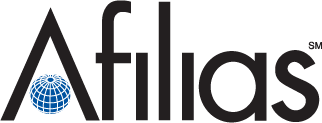


|
||
|
||
 Paris, 12 November 2019 – The Global Commission on the Stability of Cyberspace (GCSC) issued today its final report Advancing Cyberstability, as part of a panel held at the 2019 Paris Peace Forum. Afilias served on the Management Board of the GCSC, overseeing and supporting the work of Commissioners, Special Advisors, Secretariat (comprised of The Hague Centre for Strategic Studies and the EastWest Institute) and the Research Advisory Group.The Global Commission on the Stability of Cyberspace (GCSC) today presented its ”Advancing Cyberstability” report at the Paris Peace Forum. The report is the culmination of the Commission’s multi-stakeholder efforts over the past three years to offer—at a critical juncture in the future of cyberspace—a framework for cyber stability, norms of cyber-behavior for state and non-state actors, and recommendations for enhancing stability.
Paris, 12 November 2019 – The Global Commission on the Stability of Cyberspace (GCSC) issued today its final report Advancing Cyberstability, as part of a panel held at the 2019 Paris Peace Forum. Afilias served on the Management Board of the GCSC, overseeing and supporting the work of Commissioners, Special Advisors, Secretariat (comprised of The Hague Centre for Strategic Studies and the EastWest Institute) and the Research Advisory Group.The Global Commission on the Stability of Cyberspace (GCSC) today presented its ”Advancing Cyberstability” report at the Paris Peace Forum. The report is the culmination of the Commission’s multi-stakeholder efforts over the past three years to offer—at a critical juncture in the future of cyberspace—a framework for cyber stability, norms of cyber-behavior for state and non-state actors, and recommendations for enhancing stability.
The mission of the GCSC has been to develop proposals for norms and policies to enhance international security and stability in cyberspace. Afilias, the world’s second largest domain name registry, served on the Management Board of the GCSC, overseeing and supporting the work of Commissioners, Special Advisors, Secretariat (comprised of The Hague Centre for Strategic Studies and the EastWest Institute) and the Research Advisory Group. Afilias partnered with the Ministry of Foreign Affairs of the Netherlands and France, the Cyber Security Agency of Singapore, Microsoft, and The Internet Society to sponsor the GCSC’s activities.
“In an era of increasing instability in cyberspace, the GCSC’s norms are a rational and reasoned way to build lasting security and trust. The security and stability of the core of the Internet is crucial to an open and collaborative Internet,” said Ram Mohan, Chief Operating Officer of Afilias and GCSC Board member.
Philipp Grabensee, Afilias Vice Chairman and GCSC Board Member, said “The GCSC’s six recommendations are essential to strengthen the multi-stakeholder model, and to bring global accountability to those who violate norms of good behavior online. In a connected world with disparate laws, norms adoption might be the best way to achieve stability.”
The six GCSC recommendations are:
To see the Fact Sheet and for a copy of the report, visit Advancing Cyberstability. If you wish to follow on twitter, please follow (@theGCSC).
Sponsored byCSC

Sponsored byWhoisXML API

Sponsored byVerisign

Sponsored byRadix

Sponsored byIPv4.Global

Sponsored byVerisign

Sponsored byDNIB.com
